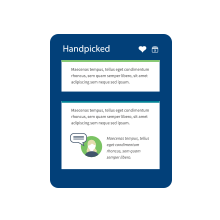Understanding the P11D form

The P11D form is a form that employers must provide to HMRC. This form details the monetary value of any benefits and expenses that they have provided during the tax year to their directors, as well as any employees of the company earning more than £8,500 per year (as of 2017).
You will need to use the P11D form if you are the director of a limited company and you need to report your year end expenses and benefits – for yourself as the director, as well as for your employees if applicable.
The director of the company is responsible for filing the P11D form, but it is not dependent on your company year. Instead, it must be filed by the 6th of July following the tax year it is based on.
What expenses and benefits must I report?
The expenses and benefits you must report on a P11D form are known as ‘benefits in kind’. These refer to any items or services your company’s employees and you as the director have received from the company, in addition to salary. You may have to pay National Insurance contributions on these benefits in kind, as they effectively increase your salary. The company, rather than the individual must pay these NICs.
Examples of benefits in kind include such additions as private healthcare, company cars, self-assessment fees paid by the company and interest-free loans.
However, certain expenses are exempt, such as travel costs, business entertainment expenses and business fees and subscriptions, including business credit cards.
What is a P11D(b) form?
A P11D(b) form is part of the process. It is a form you must submit to HMRC, summarising the individual P11D forms you completed for your employees.
HMRC will require you to submit a P11D(b) form if you have submitted any P11D forms, or if you have paid your employees’ benefits or expenses via payroll. HMRC will use the information on your P11D(b) form to determine how much Class 1A National Insurance your company will be required to pay.
Understanding P11D penalties
Similar to other filings with HMRC, if you file late or if you make an incorrect statement on your P11D form, penalties apply. If you miss the deadline to file your P11D form, you have approximately two weeks to file it. Should you miss this extension deadline, your company will incur fines of £100 per month for every 50 employees your company employs. HMRC will notify you of this and send you a reminder with details of future penalties should you still fail to file your P11D form.
If you make a genuine mistake on your P11D form, HMRC may not charge you any fines if they believe you took reasonable care before filing. However, you can be fined up to 100% of the tax you owe if HMRC believe you acted carelessly, or if your mistake was deliberate.
Ensure you file your P11D form correctly by keeping your accounts and records up to date. It’s a good idea to get assistance from a professional accountant who can ensure that your P11D form is filed correctly and on time.








